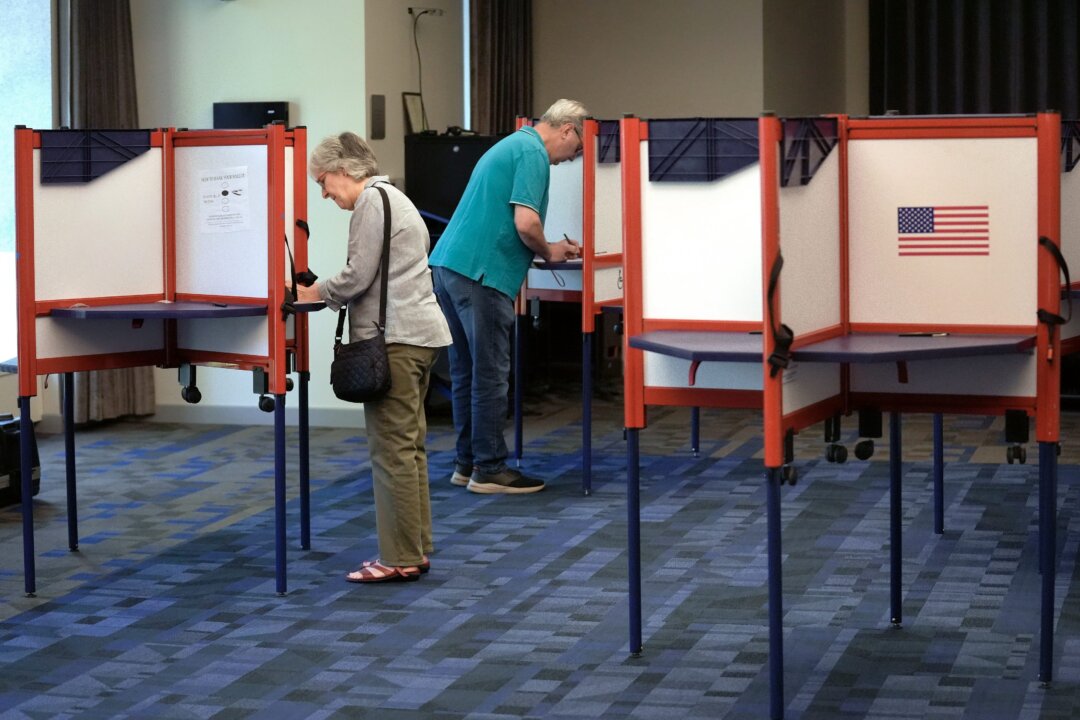Deaton vowed to tackle the ongoing border crisis and soaring cost of living if he wins the Senate race.
Attorney John Deaton will face off against incumbent Sen. Elizabeth Warren (D-Mass.) for a seat in the U.S. Senate in November after winning a three-way Republican primary in Massachusetts on Sept. 3.
The Associated Press called the primary for Deaton—a newcomer to the political scene—over fellow Republican candidates Robert Antonellis, an industrial engineer, and Quincy City Council President Ian Cain at 8:42 p.m. ET.
Deaton is a personal injury lawyer and former U.S. marine who grew up in Michigan, Detroit, according to his campaign website.
The 57-year-old announced earlier this year that he would vie for the chance to challenge Warren, a second-term incumbent, in November.
His campaign focused heavily on tackling the ongoing immigration and debt crisis as well as the disparity in education.
“Only in America could someone like me be elected to take on one of Washington’s most entrenched elite,” Deaton said in a 15-minute acceptance speech following his win. “It is an honor to be your nominee for the United States Senate.”
Deaton also used his speech to tell his rags to riches story, telling the crowd that he grew up in Highland Park—which has consistently been ranked among the poorest and most dangerous communities in the United States—to a single mother on welfare and food stamps.
He spoke candidly about his experiences with violence and sexual abuse, as well as the loss of a close friend who was shot and killed when Deaton was just 17.
Deaton said he initially did not do well at school owing to his poverty-stricken upbringing and traumatic experiences, but later went on to graduate from Eastern Michigan University and the New England School of Law. He then started his own law firm specializing in advocating for victims and their families.The attorney told the crowd that had gathered to watch his acceptance speech that he would hold his opponent accountable for her “failures on the border,” and tackle the “unaffordable cost of supporting a family, a broken health care system, abandoning our ally Israel, and restoring faith in our politics” if he wins a seat in the U.S. Senate.
“Voters are turning their back on divisive partisan politics and are ready to support a message of optimism, unity, and solving problems,” Deaton said.
The Republican said he is willing to debate Warren several times.
Warren, who ran unopposed in the Democratic primary, told The Associated Press that she’s accepted two October debates, one in Boston and one in Springfield.
Her campaign focuses heavily on “tackling the climate crisis head on,” raising wages and creating more jobs, ending the opioid crisis, and promoting a “fair and welcoming immigration system,” among other key issues.
A University of Massachusetts–Amherst survey from May showed Warren leading the way over any Republican challenger, including Deaton, in a hypothetical match up.
Elsewhere, after The Associated Press projected Deaton’s win, Cain called the results “disappointing” but touted the progress made over the course of his campaign.
“This was never about a singular person, but about highlighting the failures of our current representation and pushing for a brighter future for Massachusetts,” he said on X.
Elsewhere, Antonellis congratulated his opponent, adding that he will support Deaton in his quest to beat Warren, which he said is “a common goal which unifies us.”
“The people have spoken, and I support him as the top of the ticket, the will of the people,” Antonellis said on X. “Likewise, I hope he can present a strong front against liberalism, by also supporting the top of the Presidential ticket and also by acknowledging the Patriotism of the Make America Great Again Movement.”
The Associated Press contributed to this report.

